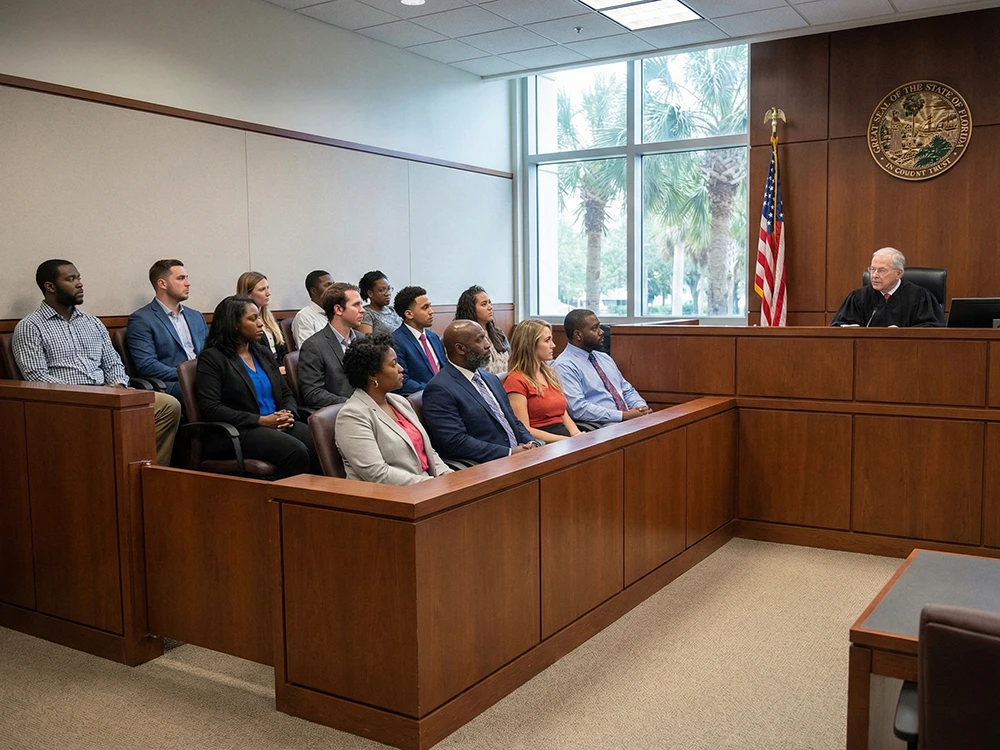In serious criminal cases, especially those involving potential capital offenses, the size and composition of the jury can raise important constitutional and statutory questions. Florida law historically permits six-person juries for most felony trials, but capital cases require twelve-person juries under both statutes and procedural rules. In a recent Florida sex crime case in which the defendant challenged the use of a six-person jury the court discussed what steps defendants must take to preserve their right to challenge jury decisions. If you are charged with a serious felony in Florida, a skilled Tampa criminal defense attorney can help you understand your trial rights and advocate on your behalf throughout the legal process.
Case History
It is reported that the defendant was charged with a series of serious sexual offenses that allegedly took place between 2007 and 2019. The charges included multiple counts of sexual battery on a child under the age of twelve, sexual battery on a child between the ages of twelve and eighteen by a person in familial or custodial authority, and lewd or lascivious molestation. The alleged victim was the defendant’s daughter, who testified that the abuse began when she was five years old.
It is alleged that the case proceeded to trial before a six-person jury, consistent with Florida practice for non-capital felonies. The defendant did not object to the jury size or request a twelve-person jury. The jury convicted the defendant on nearly all counts, and the court imposed multiple life sentences without the possibility of parole.
It is further reported that on appeal, the defendant raised two main arguments. First, he argued that his convictions for certain counts violated the constitutional prohibition on ex post facto laws, as he was charged under a statutory definition of sexual battery that was amended after the alleged offenses occurred. Second, he argued that he was entitled to a twelve-person jury under Florida law and the United States Constitution because he was charged with capital felonies.
The Right to a 12 Person Jury
On appeal, the court rejected both arguments. On the ex post facto claim, the court held that the evidence presented at trial, including the victim’s testimony, would have supported convictions under both the pre-amendment and post-amendment versions of the sexual battery statute. As a result, there was no fundamental error, and any reference to the newer statutory language did not affect the outcome.
Regarding the jury size, the court acknowledged that Florida Statutes section 913.10 and Florida Rule of Criminal Procedure 3.270 both require twelve-person juries for capital cases. However, the court noted that the defendant did not preserve this issue at trial by objecting to the jury composition. Under existing case law, failure to preserve such an issue bars appellate review unless the error is “fundamental,” meaning it must have rendered the entire trial unfair or invalid.
The panel concluded that the empanelment of a six-person jury did not rise to the level of fundamental error, especially because Florida courts have long treated the right to a twelve-person jury as a statutory, not constitutional, right. The court also declined to certify the question of jury size as one of great public importance, noting that the statutory amendment authorizing the death penalty for certain sexual battery cases only applied to offenses committed after October 1, 2023, well after the offenses in this case.
Speak with a Tampa Criminal Defense Attorney Today
Complex legal issues, such as ex post facto claims and jury composition, can significantly impact the fairness of a criminal trial. If you are facing sex crime charges, the experienced Tampa criminal defense attorneys at Hanlon Law can help protect your rights at every stage. Contact our Tampa office today at 813-228-7095 or complete our online form to schedule a confidential consultation.
 Tampa Criminal Lawyer Blog
Tampa Criminal Lawyer Blog


